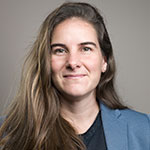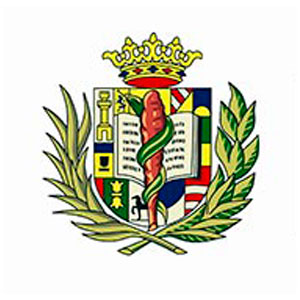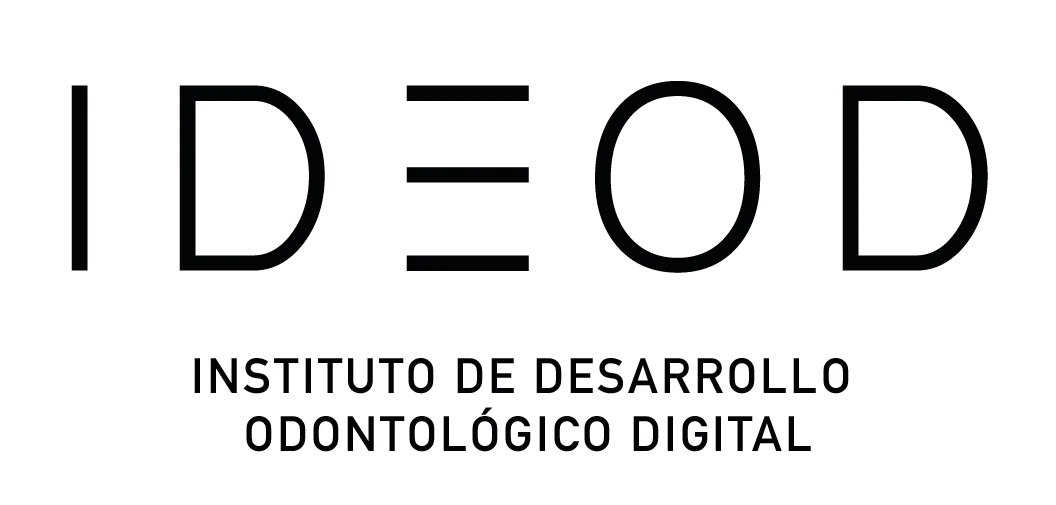Master's Degree in Medical-Surgical Lasers for Dermatoaesthetic Procedures Continuing Education
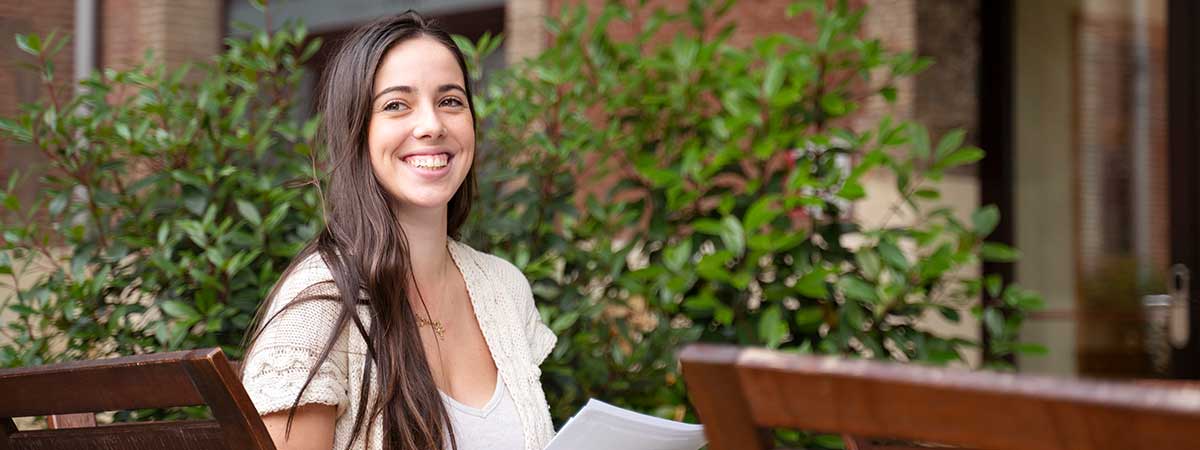
Medical photonics, photomedicine or medical-surgical laser constitutes a discipline with a well-established body of doctrine at an international level
The contents of this master's degree are designed to train experts and opinion leaders in the use of lasers and light sources indicated for aesthetic and dermal aesthetic treatments. To a lesser extent, other non-laser energy-based equipment is also included, such as radio frequency, ultrasound and other emerging technologies.
In Spain and Latin America, there are few specific training programs in medical-surgical lasers. However, there is a significant demand for training that comes predominantly from aesthetic doctors, dermatologists and plastic surgeons, given that, in these specialties, lasers and new technologies are essential for private medical practice.
This Master's degree is made up of an Advisory Committee of six experts of recognized world prestige.
Student profile: - Doctors interested in training in the use of different types of lasers, light sources and energy-based equipment (EBD) for the diagnosis and treatment of diseases.
- Doctors specializing in Dermatology, Aesthetic Medicine, Aesthetic, Plastic and Reconstructive Surgery, interested in improving the results obtained in patients.
- Doctors interested in clinical research or interested in professional opportunities in the industrial sector of laser and light sources.
Degree:Master´s Degree in Continuing Education in Medical-Surgical Lasers for Dermatoaesthetic Procedures
Center responsible:School of Life and Nature Sciences
Branch of knowledge: Health - Medical
Openings available: 18
Total Credits: 60 credits.
Minimum of 12 ECTS credits and maximum of 60 ECTS credits per enrollment and academic period
Academic year in which it was implemented: 2022/23
Duration: 2 years.
Type of Education: Blended
Academic Regulations: General student’s regulations. Credit transfer and recognition. Regulation of student participation. Common procedures for carrying out the Final Research Project
University Services: [+info]
Curriculum
The student must complete 60 credits
First Year 20 ECTS credits
- 6 ECTS | Assistance and research with medical-surgical lasers
- 1 ECTS | Physics of light and the electromagnetic spectrum: characteristics of laser light. Energy-based equipment
- 3 ECTS | Structure and engineering of laser equipment
- 2 ECTS | Dosimetric parameters for clinical application
- 2 ECTS | Interaction of the laser with biological tissues
- 3 ECTS | Laser applications in medical-surgical specialties
- 3 ECTS | Applications of the laser in Dermal aesthetics.
Second Year 40 ECTS credits
- 1 ECTS | Lasers and light sources in dermal aesthetic pathology
- 1 ECTS | Radiofrequency and ultrasounds in aesthetics and dermal aesthetics
- 1 ECTS | Ablative lasers in conventional mode for skin rejuvenation
- 1 ECTS | Ablative lasers in fractional mode in dermal aesthetic pathology
- 1 ECTS | Non-ablative lasers in fractional mode in dermal aesthetic pathology
- 1 ECTS | Ablative lasers: complications and their treatment
- 1 ECTS | Medical photoepilation with lasers and IPLs
- 1 ECTS | Lasers and light sources for the removal of pigmented lesions
- 1 ECTS | Laser equipment and treatments for tattoo removal
- 1 ECTS | Lasers and complementary techniques for the treatment of scars and stretch marks
- 1 ECTS | Lasers and light sources in the treatment of vascular malformations
- 1 ECTS | Lasers in the treatment of spider veins and varicose veins. Endolaser.
- 1 ECTS | Photodynamic therapy (PDT) in dermal aesthetic pathology
- 1 ECTS | Low Power Laser Therapy (LLLT) and Light Emitting Diodes (LED) in dermal aesthetics
- 1 ECTS | Lasers and Energy-based Equipment (EBD) for practical application in genital rejuvenation
- 1 ECTS | Laser lipolysis and Energy-based Equipment (EBD) in the treatment of localized fat
- 4 ECTS | Practical Workshop with Laser devices in Nebrija classrooms
- 10 ECTS | Internships in aesthetic medicine centers
- 10 ECTS | Final Research Project
More info about the subjects
Professors
| Profesores Professors | Porcentaje de Doctores Percentage of PhD holders |
| 19 | 42% |
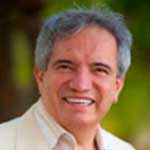 Dr. Mario A. Trelles Salazar
Director del Máster.
Dr. Mario A. Trelles Salazar
Director del Máster. Profesor Master's Degree Director. Professor. Doctor en Medicina y Cirugía por la Universidad de Sevilla. Especialista en Cirugía General. Especialista en Cirugía Plástica, Estética y Reconstructiva. American Board in Lasers in Plastic-Aesthetic Surgery. Profesor Investigador Senior del Departamento de Dermatología de la Universidad de Aarhus (Dinamarca). Presidente de Honor de la Sociedad Española de Láser Médico-Quirúrgico (SELMQ). Presidente de Honor de la European Society for Laser Aesthetic Surgery (ESLAS). Cirujano Consultor. Vilafortuny Laser Centre. Dubái. Emiratos Árabes Unidos. Autor de más de 450 artículos científicos en revistas indexadas nacionales e internacionales.
Coordinadores
Coordinators
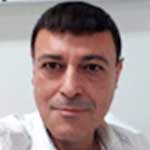 Dr. Pedro A. Martínez-Carpio
Coordinador científico y de proyectos.
Dr. Pedro A. Martínez-Carpio
Coordinador científico y de proyectos. Profesor Scientific and project coordinator.
Professor Doctor en Medicina y Cirugía por la Universidad de Barcelona. Investigador clínico. Experto en investigación y comunicación de la investigación en láser médico-quirúrgico. Director de IMC-Investiláser S.L. (Sabadell, Barcelona). Jefe de la Unidad de Investigación Ocular y Láser de Centro de Oftalmología Bonafonte (Barcelona). Miembro de la Junta Directiva de la Sociedad Española de Láser Médico-Quirúrgico (SELMQ). Miembro del Comité de Redacción del Boletín de la Sociedad Española de Láser Médico-Quirúrgico. Autor de más de 100 artículos científicos en revistas indexadas nacionales e internacionales.
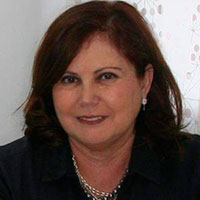 Dra. María del Pilar Martín
Coordinadora docente y de prácticas clínicas.
Dra. María del Pilar Martín
Coordinadora docente y de prácticas clínicas.Profesora Teaching and clinical practice coordinator.
Professor Licenciada en Medicina y Cirugía. Doctora en Odontología. Master Universitario en Salud Pública Oral. Master en Ortodoncia en Técnica Ritcketts . Master in Implantología, Cirugía, Periodoncia y Prostodoncia. Master Europeo “Aplicaciones del Láser en Odontología”. Master of Science (M.Sc) in Lasers in Dentistry. Autora de numerosos trabajos científicos sobre Odontologia en publicaciones nacionales e internacionales. Coordinadora y docente universitaria en sector odontología. Médico Odontóloga y Directora Clínica. Clínica “Procorpore Proboca Canarias”. Santa Cruz de Tenerife. España.
Comité consultor internacional
International advisory committee
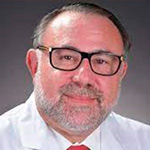 Dr. Michael Gold
Miembro del comité consultor internacional
Member of the international advisory committee
Director. Gold Skin Care Center, Nashville, EEUU.
Dr. Michael Gold
Miembro del comité consultor internacional
Member of the international advisory committee
Director. Gold Skin Care Center, Nashville, EEUU.
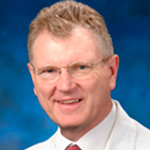 Dr. Christopher Zachary
Miembro del comité consultor internacional
Member of the international advisory committee
Professor and Chair Emeritus Department of Dermatology, University of California, Irvine, CA. EEUU.
Dr. Christopher Zachary
Miembro del comité consultor internacional
Member of the international advisory committee
Professor and Chair Emeritus Department of Dermatology, University of California, Irvine, CA. EEUU.
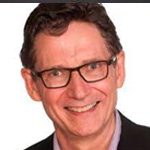 Dr. Peter Bjerring
Miembro del comité consultor internacional
Member of the international advisory committee
Jefe del Departamento de Dermatología. Molhom Hospital. Vejle, Dinamarca.
Dr. Peter Bjerring
Miembro del comité consultor internacional
Member of the international advisory committee
Jefe del Departamento de Dermatología. Molhom Hospital. Vejle, Dinamarca.
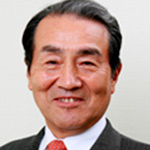 Dr. Toshio Oshiro
Miembro del comité consultor internacional
Member of the international advisory committee
Director. Japan Medical Laser Laboratory.Shinjuku-ku, Tokyo, Japón.
Dr. Toshio Oshiro
Miembro del comité consultor internacional
Member of the international advisory committee
Director. Japan Medical Laser Laboratory.Shinjuku-ku, Tokyo, Japón.
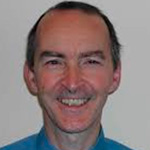 Dr. Harry Moseley
Miembro del comité consultor internacional
Member of the international advisory committee
Director. Photobiology Unit. Universidad de Dundee, Reino Unido
Dr. Harry Moseley
Miembro del comité consultor internacional
Member of the international advisory committee
Director. Photobiology Unit. Universidad de Dundee, Reino Unido
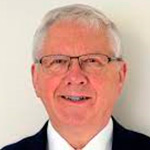 Dr. Godfrey Town
Miembro del comité consultor internacional
Member of the international advisory committee
Investigator senior. Departamento de Dermatología. Universidad de Aalborg, Dinamarca.
Dr. Godfrey Town
Miembro del comité consultor internacional
Member of the international advisory committee
Investigator senior. Departamento de Dermatología. Universidad de Aalborg, Dinamarca.
Profesores
Professors
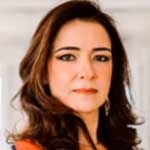 Dra. Luciana Almeida
Profesora
Professor
Doctora en ciencias de los materiales. Máster en Ingeniería Biomédica. Instituto Nupen, Brasil. Profesor Coordinador de Nupen - Centro de Investigación y Enseñanza de Fototerapia en Ciencias de la Salud, São Carlos, Brasil. • Profesor del curso de "Maestría en Odontología Láser" del Instituto Mexicano de Tecnología Biomédica, Monterrey, México.
Dra. Luciana Almeida
Profesora
Professor
Doctora en ciencias de los materiales. Máster en Ingeniería Biomédica. Instituto Nupen, Brasil. Profesor Coordinador de Nupen - Centro de Investigación y Enseñanza de Fototerapia en Ciencias de la Salud, São Carlos, Brasil. • Profesor del curso de "Maestría en Odontología Láser" del Instituto Mexicano de Tecnología Biomédica, Monterrey, México.
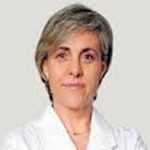 Dra. Izaskun Astoreca
Profesora
Professor
Licenciada en Medicina. Máster en Medicina Estética y Antienvejecimiento por la Universidad Complutense de Madrid. Profesora en el Máster de dermatología estética de la Universidad de Alcalá de Henares en el área de tratamientos médico-estéticos corporales. Máster en Psicoterapia Humanista Integrativa por el Instituto Galene de Psicoterapia..Máster en Terapia Breve Estratégica por la Strategic Therapy Center de Arezzo ( Italy). Experta en fotodepilación láser.
Dra. Izaskun Astoreca
Profesora
Professor
Licenciada en Medicina. Máster en Medicina Estética y Antienvejecimiento por la Universidad Complutense de Madrid. Profesora en el Máster de dermatología estética de la Universidad de Alcalá de Henares en el área de tratamientos médico-estéticos corporales. Máster en Psicoterapia Humanista Integrativa por el Instituto Galene de Psicoterapia..Máster en Terapia Breve Estratégica por la Strategic Therapy Center de Arezzo ( Italy). Experta en fotodepilación láser.
 Dr. Adrián Alegre
Profesor
Professor
Dr. Adrián Alegre
Profesor
Professor
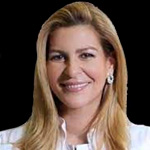 Dra. Virginia Benítez
Profesora
Professor
Licenciada en Medicina. Especialista en Cirugía General. Máster en Láser Médico-Quirúrgico. Máster en Medicina Estética y del Envejecimiento Fisiológico por la Universidad de Barcelona. Vicepresidenta de la SELMQ. Miembro del comité científico revisor del International Journal of Lasers in Medical Science. Miembro de la World Society of Cosmetic Gynecology.
Dra. Virginia Benítez
Profesora
Professor
Licenciada en Medicina. Especialista en Cirugía General. Máster en Láser Médico-Quirúrgico. Máster en Medicina Estética y del Envejecimiento Fisiológico por la Universidad de Barcelona. Vicepresidenta de la SELMQ. Miembro del comité científico revisor del International Journal of Lasers in Medical Science. Miembro de la World Society of Cosmetic Gynecology.
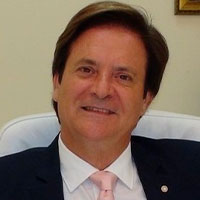 Dr. Sergio Bonafonte
Profesor
Professor
Licenciado y Doctor en Medicina y Cirugía, y de especialista en Oftalmología. Ejerció como "Clinical Fellow" en el Departamento de Oftalmología del Hermann Eye Center (Hermann Hospital) del Centro Médico de Houston y del Saint Joseph Hospital, ambos pertenecientes a la Facultad de Medicina de la Universidad de Texas en Houston. Es miembro activo de la Sociedad Española de oftalmología, de la Sociedad Catalana de oftalmología, de la Sociedad Europea de Contactología, de la Sociedad Española de Retina y Vítreo y de la Sociedad Americana de Especialistas en Retina.
Dr. Sergio Bonafonte
Profesor
Professor
Licenciado y Doctor en Medicina y Cirugía, y de especialista en Oftalmología. Ejerció como "Clinical Fellow" en el Departamento de Oftalmología del Hermann Eye Center (Hermann Hospital) del Centro Médico de Houston y del Saint Joseph Hospital, ambos pertenecientes a la Facultad de Medicina de la Universidad de Texas en Houston. Es miembro activo de la Sociedad Española de oftalmología, de la Sociedad Catalana de oftalmología, de la Sociedad Europea de Contactología, de la Sociedad Española de Retina y Vítreo y de la Sociedad Americana de Especialistas en Retina.
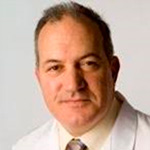 Dr. Carlos Boné
Profesor
Professor
Licenciado en Medicina. Máster en Medicina Estética. Experto en flebología por el Vein Treatment Center (Nueva York). Inventor bajo patente del láser endovenoso. Profesor en el área de flebología de las Universidades de Palma de Mallorca y Córdoba. Autor de múltiples artículos nacionales e internacionales en revistas especializadas de flebología. Miembro de la Sociedad Española de Angiología y Cirugía Vascular- Capítulo de Flebología.
Dr. Carlos Boné
Profesor
Professor
Licenciado en Medicina. Máster en Medicina Estética. Experto en flebología por el Vein Treatment Center (Nueva York). Inventor bajo patente del láser endovenoso. Profesor en el área de flebología de las Universidades de Palma de Mallorca y Córdoba. Autor de múltiples artículos nacionales e internacionales en revistas especializadas de flebología. Miembro de la Sociedad Española de Angiología y Cirugía Vascular- Capítulo de Flebología.
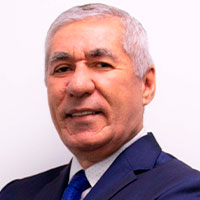 Dr. Fernando Chávarri
Profesor
Professor
Médico Cirujano de la Universidad Nacional Mayor de San Marcos (UNMSM). Honrado con el Premio a la Mejor Comunicación por la Sociedad Española de Láser Médico Quirúrgico (SELMQ), presentando una destacada investigación sobre 602 casos de Rejuvenecimiento Cutáneo con Láser de Co2 en Pieles Oscuras. Maestría en Láser y Fototerapia en Patologías Dermato-estéticas en 2017, por la Universidad de Barcelona. Director General en Clínica Chávarri, Director de la Asociación Peruana de Láser Médico Quirúrgico (APLAMEQ). Miembro del Consejo Directivo de la European Laser Association (ELA) y de la Sociedad Española de Láser Médico Quirúrgico (SELMQ).
Dr. Fernando Chávarri
Profesor
Professor
Médico Cirujano de la Universidad Nacional Mayor de San Marcos (UNMSM). Honrado con el Premio a la Mejor Comunicación por la Sociedad Española de Láser Médico Quirúrgico (SELMQ), presentando una destacada investigación sobre 602 casos de Rejuvenecimiento Cutáneo con Láser de Co2 en Pieles Oscuras. Maestría en Láser y Fototerapia en Patologías Dermato-estéticas en 2017, por la Universidad de Barcelona. Director General en Clínica Chávarri, Director de la Asociación Peruana de Láser Médico Quirúrgico (APLAMEQ). Miembro del Consejo Directivo de la European Laser Association (ELA) y de la Sociedad Española de Láser Médico Quirúrgico (SELMQ).
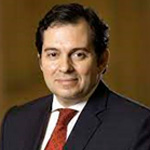 Dr. Francisco M. Falçao
Profesor
Professor
Licenciado en Medicina. Cirujano Plástico. Experto en procedimientos láser. Cirujano Plástico Consultor Senior Certificado con más de 23 años de experiencia demostrada en la práctica pública y privada. Las áreas de especialización incluyen cirugía plástica estética y reconstructiva para la cirugía de cabeza, cuello y mama: contorno corporal: cirugía de manos; cirugía oncoplastic y tratamiento crónico de la herida.
Dr. Francisco M. Falçao
Profesor
Professor
Licenciado en Medicina. Cirujano Plástico. Experto en procedimientos láser. Cirujano Plástico Consultor Senior Certificado con más de 23 años de experiencia demostrada en la práctica pública y privada. Las áreas de especialización incluyen cirugía plástica estética y reconstructiva para la cirugía de cabeza, cuello y mama: contorno corporal: cirugía de manos; cirugía oncoplastic y tratamiento crónico de la herida.
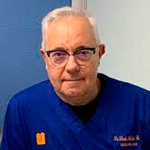 Dr. Donis Muñoz
Profesor
Professor
Licenciado en Medicina. Dermatólogo. Experto en eliminación de tatuajes. Es autor del libro " Guía práctica para la eliminación de tatuajes con láser Q-Switched" ( en 2013) y del “Tratado sobre los tatuajes. Claves para su eliminación con láser” (en 2017). profesor del Máster Universitario en Técnicas Avanzadas Estéticas y Láser, de la Fundación Vithas / Universidad CEU Cardenal Herrera de Valencia.
Dr. Donis Muñoz
Profesor
Professor
Licenciado en Medicina. Dermatólogo. Experto en eliminación de tatuajes. Es autor del libro " Guía práctica para la eliminación de tatuajes con láser Q-Switched" ( en 2013) y del “Tratado sobre los tatuajes. Claves para su eliminación con láser” (en 2017). profesor del Máster Universitario en Técnicas Avanzadas Estéticas y Láser, de la Fundación Vithas / Universidad CEU Cardenal Herrera de Valencia.
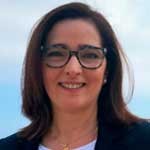 Sra. Judit Padrós
Profesora
Professor
Máster en Dirección de Organizaciones Sanitarias (ESADE). Máster en Dirección de Servicios Integrados de Salud (ESADE). Máster en Gestión del Cambio (Bussiness School, Universidad de Georgetown, EEUU.
Sra. Judit Padrós
Profesora
Professor
Máster en Dirección de Organizaciones Sanitarias (ESADE). Máster en Dirección de Servicios Integrados de Salud (ESADE). Máster en Gestión del Cambio (Bussiness School, Universidad de Georgetown, EEUU.
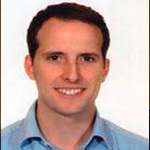 Dr. Antonio Pardo
Profesor
Professor
Licenciado en Biología por la Universidad de Barcelona (2000)
Doctor en Biología por la Universidad de Barcelona (2006). Máster en Fotomedicina: Láser y Fototerapia por la Universidad Politécnica de Cataluña. Investigador-Docente de Fotobiología en la Universidad de Barcelona (2000-2007). Profesor Asociado de Ingeniería en la Universidad Politécnica de Cataluña (2001-2002). Director Técnico del Instituto de Fotomedicina de Centro Médico Teknon (2007-2009).
Dr. Antonio Pardo
Profesor
Professor
Licenciado en Biología por la Universidad de Barcelona (2000)
Doctor en Biología por la Universidad de Barcelona (2006). Máster en Fotomedicina: Láser y Fototerapia por la Universidad Politécnica de Cataluña. Investigador-Docente de Fotobiología en la Universidad de Barcelona (2000-2007). Profesor Asociado de Ingeniería en la Universidad Politécnica de Cataluña (2001-2002). Director Técnico del Instituto de Fotomedicina de Centro Médico Teknon (2007-2009).
 Dra. Katiuska C. Rivera
Profesora
Professor
Licenciada en Medicina. Máster en Láser Médico-Quirúrgico. Grado de Médico. Facultad de Medicina de la Universidad de Carabobo, Carabobo, Venezuela 2005. Medicina Estética. J. F. Kennedy University. Buenos Aires, Argentina 2007. Oficial Médico Láser. Northwestern Memorial Hospital, Chicago, Illinois – EEUU 2010. Máster universitario en Laser y Terapia de Luz en Medicina y Dermo - Patología Estética. Universidad de Barcelona, España. 2010- 2013
Dra. Katiuska C. Rivera
Profesora
Professor
Licenciada en Medicina. Máster en Láser Médico-Quirúrgico. Grado de Médico. Facultad de Medicina de la Universidad de Carabobo, Carabobo, Venezuela 2005. Medicina Estética. J. F. Kennedy University. Buenos Aires, Argentina 2007. Oficial Médico Láser. Northwestern Memorial Hospital, Chicago, Illinois – EEUU 2010. Máster universitario en Laser y Terapia de Luz en Medicina y Dermo - Patología Estética. Universidad de Barcelona, España. 2010- 2013
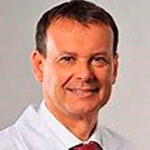 Dr. Rafael Serena
Profesor
Professor
Licenciado en Medicina. Máster en Medicina Estética. Presidente de la SELMQ. Director de Serena Clinic.
Dr. Rafael Serena
Profesor
Professor
Licenciado en Medicina. Máster en Medicina Estética. Presidente de la SELMQ. Director de Serena Clinic.
Vocal de Junta Directiva de la European Láser Association (ELA) y miembro de The European Society for Laser Aesthetic Surgery y la International Society of Cosmetic Laser Surgeons. Pertenece al Comité Científico de la revista Photonics & Lasers in Medicine, de la editorial de Gruyter. Actualmente es Consultor de las empresas: Allergan, Isdin y Cocoon Medical.
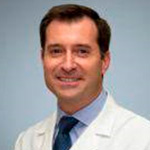 Dr. Carlos Serra
Profesor
Professor
Doctor en Medicina. Dermatólogo. Profesor de Dermatología. Universidad Católica de Valencia. Profesor de Máster en Ensayos Clínicos de la Universidad Católica de Valencia. Curso 2016-2017. Profesor de Dermatología Grado de Medicina. Universidad CEU Cardenal Herrera desde el curso 2016-2017 hasta 2019. 85 artículos científicos en revistas nacionales e internacionales. 99 ponencias en Cursos y Congresos Nacionales e internacionales.
Dr. Carlos Serra
Profesor
Professor
Doctor en Medicina. Dermatólogo. Profesor de Dermatología. Universidad Católica de Valencia. Profesor de Máster en Ensayos Clínicos de la Universidad Católica de Valencia. Curso 2016-2017. Profesor de Dermatología Grado de Medicina. Universidad CEU Cardenal Herrera desde el curso 2016-2017 hasta 2019. 85 artículos científicos en revistas nacionales e internacionales. 99 ponencias en Cursos y Congresos Nacionales e internacionales.
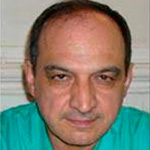 Dr. Mariano Vélez
Profesor
Professor
Licenciado en Medicina y Cirugía. Licenciado en Farmacia. Licenciado en Biología. Exfacultativo del Servicio de Dermatología del Hospital del Mar de Barcelona. Director Médico del Centro Médico Ronefor. Miembro de la Sociedad Española de Laser Médico Quirúrgico SELMQ. Codirector Docente del Diploma de Competencia en Medicina y Cirugía Láser del Centro de Estudios del Colegio Oficial de Médcis de Barcelona.
Dr. Mariano Vélez
Profesor
Professor
Licenciado en Medicina y Cirugía. Licenciado en Farmacia. Licenciado en Biología. Exfacultativo del Servicio de Dermatología del Hospital del Mar de Barcelona. Director Médico del Centro Médico Ronefor. Miembro de la Sociedad Española de Laser Médico Quirúrgico SELMQ. Codirector Docente del Diploma de Competencia en Medicina y Cirugía Láser del Centro de Estudios del Colegio Oficial de Médcis de Barcelona.
More Academic Information
Competences
Specific CompetencesUpon completion of the two-year learning process, which involves acquiring theoretical knowledge and practical skills, submitting Final Research Project, passing assessment and obtaining the Master's degree in Specialization in Medical-Surgical Lasers for Dermatoaesthetic Procedures from Nebrija University, students will be able to apply the following specific competences in their professional practice:
- Acquire the competence to calculate and apply the dosimetric parameters for the clinical application of lasers with efficacy and safety, according to the recommended protocols based on clinical practice guidelines based on scientific evidence.
- Train to know the interaction of lasers on biological tissues, taking into account the protocolized safety and efficacy ranges.
- Know and know how to use laser applications in various medical-surgical specialties (Ophthalmology, Gynecology, Urology, Pneumology, Oncology, Spinal Surgery and Traumatology, and Otorhinolaryngology).
- Know how to apply the knowledge and skills acquired for the optimal use of lasers, light sources and other energy-based equipment in dermatological, aesthetic and dermo-aesthetic treatments.
- Know how to apply the necessary knowledge and skills acquired to carry out medical hair removal treatments, according to the protocols established by scientific societies in the medical laser sector.
- Train to apply the knowledge and skills acquired for facial and body rejuvenation treatments appropriate to the accredited clinical practice guides.
- Know how to use lasers, light sources and other energy-based equipment to treat vascular lesions and varicose veins effectively and safely.
- Know how to apply lasers, light sources and other energy-based equipment to treat pigmented lesions, tattoos, scars, stretch marks and localized fat, supported by protocols from scientific societies.
- Demonstrate the necessary research competence for the development of clinical trials with laser equipment and new technologies in patients, and to communicate the results of said trials both to the industry and to the specialized press.
- Acquire the necessary knowledge and skills to critically evaluate and analyze the technical and clinical documentation provided by the industry on the different equipment that is marketed in this field.
- Assimilate the knowledge and skills necessary to advise the industry on technical and clinical aspects related to lasers, light sources and other energy-based equipment.
- Possess the necessary knowledge and skills to evaluate and communicate clinical results obtained in patients (design of clinical trials, writing texts and specialized scientific publications).
- Know how to apply the knowledge and business skills necessary to direct and manage private clinics equipped with lasers and other energy-based equipment.
- Raise awareness to keep ethical and deontological aspects in mind at all times in the doctor-patient relationship, generally in private healthcare.
- Apply at all times the protection and safety regulations stipulated in the use of lasers, to protect both patients and professionals.
Blended Studies
The modality of this Master's degree is Blended. The training program lasts two years, taught by a faculty of professors carefully selected based on their academic, professional, teaching and research experience.
The first year of the Master's degreeThe first year of the Master's degree includes a set of general chapters of online theoretical material.
The online teaching system will be carried out entirely through the Virtual Campus, accessible online through the teletraining platform currently in use at the University.
At the beginning of the course, the student is provided, online (email and downloadable material from the website), with the general documentation of the Master's degree, which will include:
- General information with all subjects.
- General calendar.
- List of professors
- General teaching methodology.
- Description of the type of documents that are published.
- Basic contact information, with email addresses for tutoring session and consultations. Along with this general documentation, and also online, the student will be provided with a didactic guide for each subject, which includes:
- Detailed program of the subject and the competences that the student will achieve upon finishing it.
- Details of the set of training activities, evaluation criteria in ordinary and extraordinary calls, bibliography and recommended links.
- Location and detailed mechanisms for tele-tutoring with the professor.
- Any other information and guidance necessary to follow the course.
This material will be accessible at all times through the Virtual Campus.
Each subject is coordinated by a tutor-professor, who is responsible for setting the training itineraries and providing students, through the Virtual Campus, with all the necessary material to take the subject.
The Virtual Campus for each subject is structured around a set of folders for communication, documentation, notices, etc. typical of e-learning educational projects. The platform also offers a series of fundamental tools for online learning, such as forums, videoconferencing, submission of work or document repositories for the dissemination of notes among students. Additionally, it incorporates tools such as surveys and exercises.
The teaching of the subjects is structured on training itineraries that are learning sequences programmed by the tutor based on the contents of the subject.
The tutor monitors the students' progress, knowing at all times what documents they have read and how much time they have spent on it.
The professors are permanently accessible via email with a maximum response time of 48 hours.
The publication of documentation is distributed throughout the academic year, in several installments corresponding to the different modules and learning stages, so that the student gradually assimilates the subject matter. Each of these educational material publications will be composed of various types of documents:
- Theoretical contents of the subject. Each didactic unit (module or stage) explains a complete unit of the subject. Its content, of wide extension and depth, includes complementary information on concepts, definitions, bibliography and web links of interest.
- Assessment tests with multiple answers and follow-up tests. Your results will be published on the platform
- Video about the techniques described in each subject of the 2nd year curriculum with proposed exercises that the student must carry out and address the contents of the subject and its application to problems, examples and practical cases.
In the first year, the didactic methodology consists of teaching sessions programmed with a calendar that is previously communicated to the students. They are broadcast live online through Nebrija's Global Campus virtual classroom, with the presentation of the professor (supported, where appropriate, by slides and/or video) and the subsequent interaction with the students to answer questions and present clinical cases.
The second year of the Master's degree focuses on dermatological and dermo-aesthetic treatments, with a second series of chapters of theoretical-practical material, a Practical Workshop Course of Intensive Instruction (face-to-face) of 40 teaching hours in a university classroom equipped with lasers. It will take place in a single intensive week from Monday to Friday, 4 hours in the morning and 4 hours in the afternoon, with the support of the sector, at the Nebrija University installations in Madrid. In collaboration with the laser equipment manufacturing industry and EBD. Also in the second year, an internship of 70 teaching hours of face-to-face practices (generally distributed over two weeks of full-time work) is carried out in prestigious private clinics. To facilitate student access, if possible, these accredited clinics are located in the cities of Madrid, Barcelona and Malaga. As far as possible, the student may choose any of the three locations to carry out the corresponding internship, under the supervision of an internship tutor, one for each student.
Practical face-to-face course of 40 teaching hours in a university teaching classroom equipped with laser. It will be held in a single intensive week from Monday to Friday, 4 hours in the morning and 4 hours in the afternoon, at the Nebrija University campus in Madrid. In collaboration with the industry manufacturer of laser equipment and EBD.
Submission and passing a tutored research project or Final Research Project (FRP). Each student must present and pass the results of a basic, clinical or bibliographic research project related to the contents of the master's degree before an evaluating tribunal. Each student will have the help of a tutor to carry out their research project. The estimated time for the execution of the FRP is 9 months.
In order to obtain the corresponding degree, it will be necessary to take the theoretical-practical contents, pass the online theoretical evaluations, pass a face-to-face theoretical-practical exam, pass the evaluation of the internship tutor, pass the evaluation of the project tutor and pass the presentation of the FRP before the corresponding tribunal.
Employability
The medical field in which Laser technology is most applied is in dermal aesthetics. As Aesthetic Medicine is practiced exclusively in private medical field and is not covered by public medicine, this has generated an important health-medical sector with an industrial component of devices, pharmaceutical industry and services, of great economic value. Many medical professionals have directed their professional activity to this sector due to the low remuneration of the rest of public health specialties compared to other countries in our context. A minimally successful medical service in this sector tends to provide professional fees that are much more favorable than the average of other specialties.
Internships in accredited private clinics (face-to-face)
This is an exclusive master's degree, and the only one in Spain in which you can carry out internships in clinics where they offer 100% of the treatments.
The internships are personalized, since there will not be several students in one room, but rather the student will be alone with a doctor and a patient observing all the laser treatments, and be able to choose to the specialization that interests them the most.
The internships are carried out exclusively in clinics that offer all laser treatments in Madrid, including those that use the latest technology, such as high frequency, cryolipolysis, pressotherapy, etc.
This master's degree offers a great opportunity to observe all the various treatments in the clinic for 40 hours, and in a single week.




